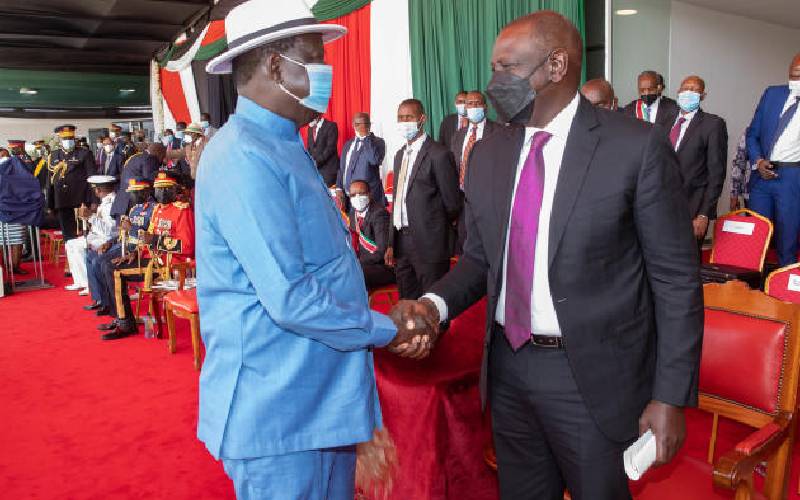×
The Standard e-Paper
Join Thousands of Readers

Kenyans can be forgiven if they react to the ‘new dawn in Kenya’ promised by the main political formations with hostile scepticism. After all, there have been many false dawns.
And yet an objective examination of the promises of Kenya Kwanza and Azimio coalitions reveal that the people of Kenya truly face two clear choices: moving forward or moving backward. The contrast, for those willing to be objective, is stark.